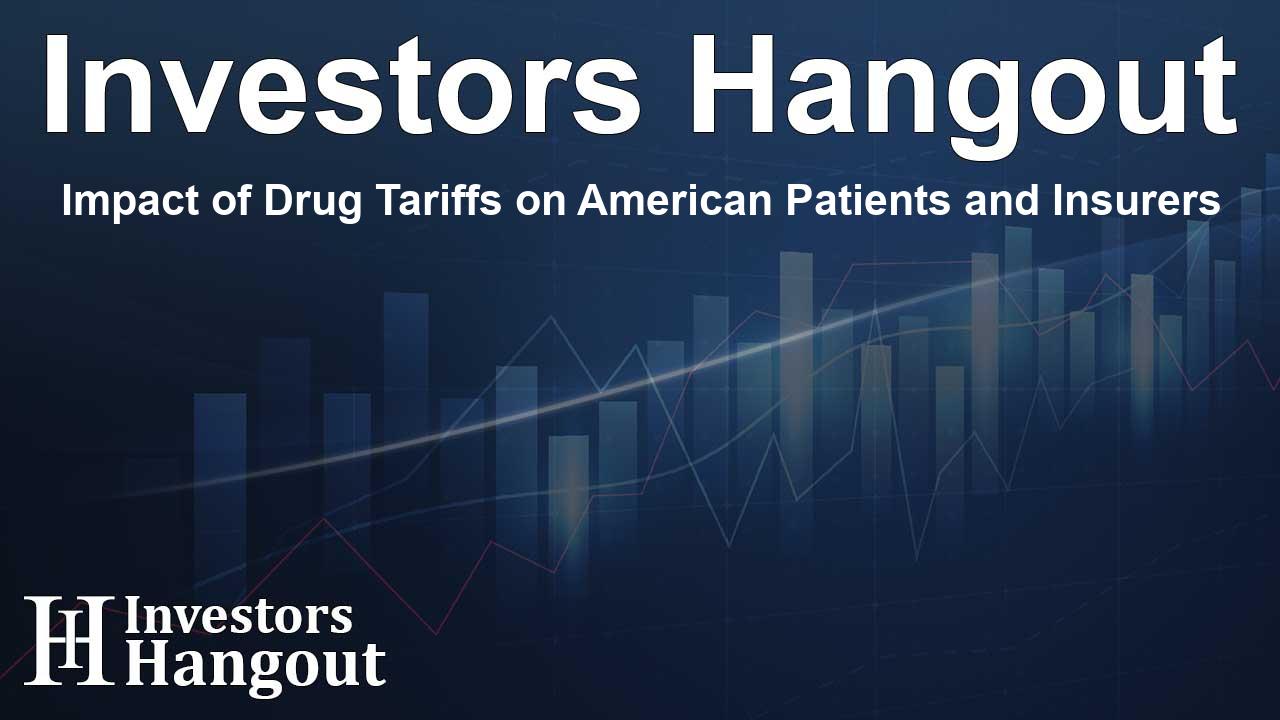Impact of Drug Tariffs on American Patients and Insurers

Understanding the Proposed Drug Tariffs Introduced by the Administration
Recent discussions have centered around proposed 100% tariffs on foreign pharmaceuticals, primarily advocated by the administration. Economists warn that these tariffs will place a heavy financial burden on American patients and insurers rather than the foreign drug manufacturers.
Economic Insights on Tariff Effects on Prescription Drug Costs
According to economist Justin Wolfers, the argument that tariffs will lead to price reductions in the pharmaceutical market is flawed. He explains that for patented and brand-name drugs, where competition is virtually nonexistent, companies can simply pass on the additional costs to consumers who have no other options.
The Unique Case of Patented Drugs
Wolfers points out that these patented medications create a unique market dynamic. When there are no alternatives available, foreign manufacturers are likely to absorb none of the tariff costs. Instead, it will be the American buyers—comprising patients and insurance companies—who will shoulder the financial impact.
Direct Consequences for Consumers on Tariffs
This situation exemplifies the principle that when it comes to certain products, particularly patented drugs, buyers end up absorbing any increased costs. Wolfers highlighted this perspective in a recent social media post.
Industry Reaction: Concerns from Pharmaceutical Experts
Many in the pharmaceutical industry have expressed concerns about the proposed tariffs. While they are touted as necessary measures to protect American manufacturers from what the administration deems “unfair competition,” the reality may differ significantly.
Investment Outlook Amid Market Changes
The tariffs have sparked a notable increase in investments in U.S.-based pharmaceutical manufacturing. Companies with a strong domestic presence, such as Eli Lilly and Co. (NYSE: LLY) and Pfizer Inc. (NYSE: PFE), may stand to benefit from these policy changes. Nevertheless, this potential upside does not negate the financial risks posed to consumers.
Warning from Industry Organizations
Industry groups, including the Pharmaceutical Research and Manufacturers of America (PhRMA), have cautioned that every dollar spent on tariffs detracts from investments in American innovation and drug development. Their warning emphasizes that the tariffs could limit resources available for producing new treatments and cures.
Effects on Patients Dependent on Brand-Name Medications
While generic drugs remain exempt from these tariffs—an acknowledgment of their widespread use—the reality is that consumers reliant on foreign-made specialty medications will ultimately face steeper prices.
Potential Financial Impact on Vulnerable Patients
Analysts predict that the imposition of tariffs will result in a “meaningful commercial hit” to U.S. consumers who often rely on these patented, specialized drugs. Even as the U.S. seeks to bolster its pharmaceutical manufacturing capabilities, the immediate effect in the market could be sharply rising costs, particularly for patients requiring unique medications.
Exploring Investment Opportunities in Pharmaceutical ETFs
The current landscape presents various exchange-traded funds (ETFs) linked to the pharmaceutical sector. Investors may want to consider these vehicles to capitalize on potential market changes.
List of Notable Pharma ETFs
Here are several pharmaceutical ETFs to keep an eye on:
- VanEck Pharmaceutical ETF (NASDAQ: PPH)
- iShares US Pharmaceuticals ETF (NYSE: IHE)
- Invesco Pharmaceuticals ETF (NYSE: PJP)
- SPDR S&P Pharmaceuticals ETF (NYSE: XPH)
- First Trust Nasdaq Pharmaceuticals ETF (NASDAQ: FTXH)
Performance Insights
In recent trading sessions, major ETFs and indices such as the SPDR S&P 500 ETF Trust (NYSE: SPY) and the Invesco QQQ Trust ETF (NASDAQ: QQQ) have shown positive performance, highlighting investor confidence amid these policy shifts.
Frequently Asked Questions
What are the anticipated effects of drug tariffs on patients?
Patients are expected to face higher medication costs, particularly those relying on patented and specialty drugs.
Are there any exemptions to the proposed tariffs?
Yes, the tariffs exempt generic drugs, which most people use.
How might the pharmaceutical industry react to these tariffs?
The industry is concerned that tariffs could limit investments in future drug development and innovation.
Which pharmaceutical companies are likely to benefit from these tariffs?
Companies like Eli Lilly and Pfizer, known for their strong domestic presence, could benefit from increased manufacturing investment.
Which ETFs can provide exposure to pharmaceutical stocks?
Some ETFs to watch include VanEck Pharmaceutical ETF, iShares US Pharmaceuticals ETF, and SPDR S&P Pharmaceuticals ETF.
About The Author
Contact Henry Turner privately here. Or send an email with ATTN: Henry Turner as the subject to contact@investorshangout.com.
About Investors Hangout
Investors Hangout is a leading online stock forum for financial discussion and learning, offering a wide range of free tools and resources. It draws in traders of all levels, who exchange market knowledge, investigate trading tactics, and keep an eye on industry developments in real time. Featuring financial articles, stock message boards, quotes, charts, company profiles, and live news updates. Through cooperative learning and a wealth of informational resources, it helps users from novices creating their first portfolios to experts honing their techniques. Join Investors Hangout today: https://investorshangout.com/
The content of this article is based on factual, publicly available information and does not represent legal, financial, or investment advice. Investors Hangout does not offer financial advice, and the author is not a licensed financial advisor. Consult a qualified advisor before making any financial or investment decisions based on this article. This article should not be considered advice to purchase, sell, or hold any securities or other investments. If any of the material provided here is inaccurate, please contact us for corrections.
